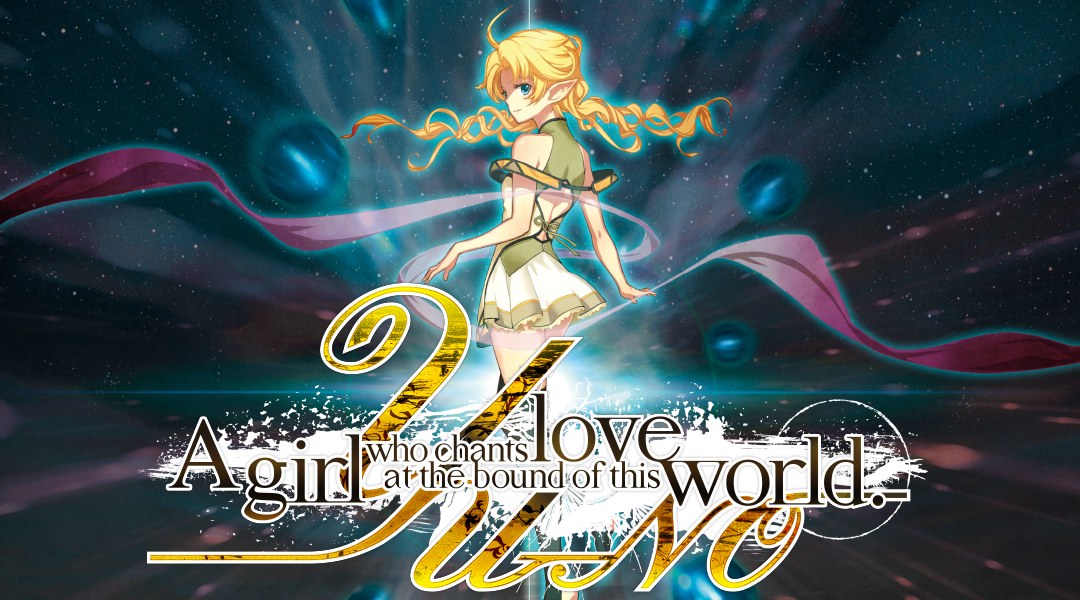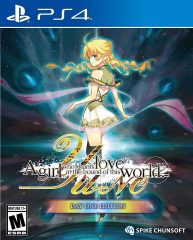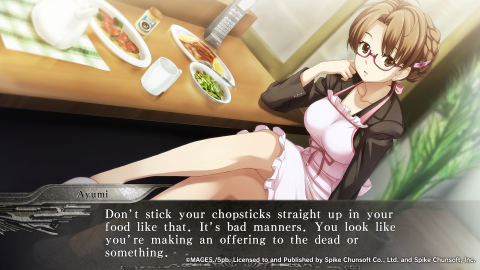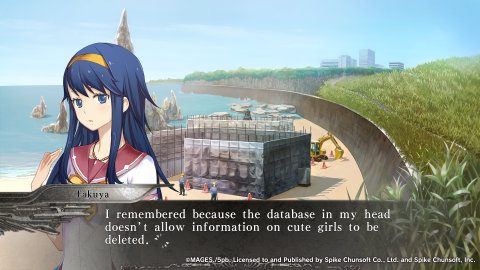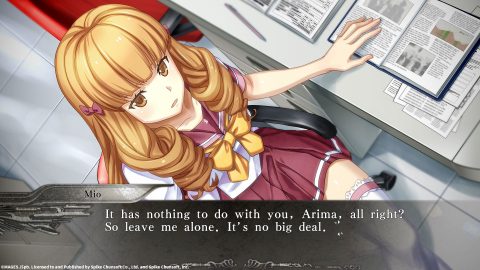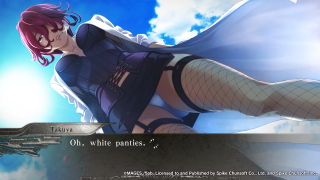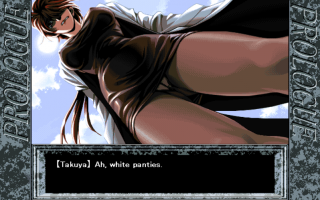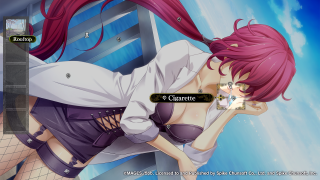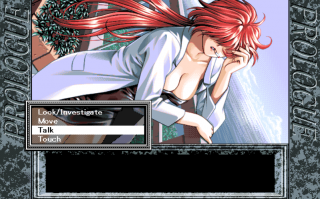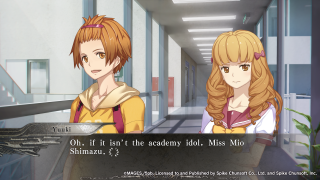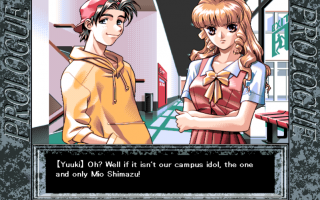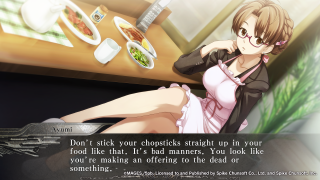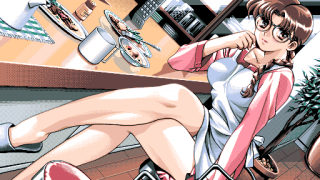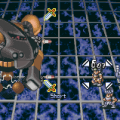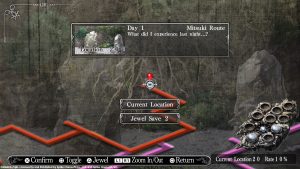- YU-NO
- YU-NO (Remake)
- 8-Bit Yu-No’s Great Adventure
YU-NO‘s reputation grew over the years, especially due to internationally popular titles like Steins;Gate, which were heavily inspired by it. And so, it would make sense that MAGES/5pb, the publisher of the Science Adventure series to which Steins;Gate belongs, would reach back into the past and create a modern remake of YU-NO. Initially published in Japan in 2017, it was released internationally in 2019, making it the first official English language version of the game. It’s a complete remake with new art, music, interface, and illustrations, though it keeps itself faithful in many regards. For a summary of the characters and story, please check out the review of the original game.
The most obvious change is the brand new artwork, provided by Ryou Nagi, illustrator for the Ar Tonelico series. Much as the original game had art very typical of the 90s, the new art feels like generic stuff from the 2010s instead – updated and more modern, but not necessarily an improvement or a downgrade. Some of the designs have changed on a case-by-case basis – most noticeably, the hero’s best friend Yuuki ditches his old baseball hat for an odd style with a hair clip. None of it is outright bad, although the adult women all look a little too young. Takuya’s stepmom Ayumi was always supposed to be on the young side, but here she barely looks older than the other high-school aged girls in the game. Also, Takuya originally had a character design that clouded his features, which was typical of adventure games of the era, but here he has an actual face. Considering how faithful the rest of the game is to the PC98 YU-NO, it would’ve been ideal if the original art was included as an option, even if they just ported over the old low resolution visuals. But as it is, it’s just something players will need to deal with.
The game uses a similar point-and-click interface, though all of the hotspots are now highlighted. Their icons and text also fade when you’ve exhausted all of its options, which is a nice touch so you don’t keep unnecessarily clicking things. In some case there are so many on the screen that they end up becoming cluttered though, and the “sticky” cursor can make it difficult to home in on the right one. There’s a new guide that indicates locations where you’re supposed to go, and there’s another hint function for one of the puzzles later on in the game, though both can be shut off. The original PC98 version uses pure menu navigation for a few sections (like the prologue) due to development constraints, but here the entire game uses the point-and-click interface. The ADMS time travel system also highlights thumbnails of the location at a particular divergence point, which makes it easier to follow.
The soundtrack includes both the original PC98 FM-based OST, as well as a brand new arranged version. The new music is a gigantic step up from the Saturn version, maintaining the faithfulness to the original score with a slightly more modern sound. But the original soundtrack is such a legend of FM synth music that it still remains the preferable version. All the voice acting is brand new compared to the Saturn version, as well.
As for the story and dialogue, it’s faithful to the original game, for better or worse. The English translation is at least as good as the fan translation, too. The story itself, once it picks up, is outstanding, but its roots as 18+ software is evident due to Takuya’s rather vulgar attitude towards women, as well as the framing of many of the CG shots of the (largely female) cast and some fairly creepy thematic elements. All of the purely pornographic stuff has been cut, as it was with the Saturn version due to console restrictions, but it still more than earns its CERO D / ESRB M rating.
There’s an argument to be made that YU-NO would be a better game if they scaled back on the sleaziness, because the reason why the game is so beloved has nothing to do with those elements. And there’s still quite a bit of redundant text and unnecessary hot spots, which don’t do much but add in clutter. But at the same time, it is over two decades old, and it’s also reasonable to just leave classic works as they are, warts and all. But that also means understanding the context of when it was produced, and that it’s better to compare YU-NO to its contemporaries like Policenauts – another Japanese adventure game from the 1990s which has some of the same design issues and a similarly misogynistic protagonist – rather than something more modern like AI: The Somnium Files, which was released in English around the same time in 2019. Accepting that, YU-NO is still an essential work of Japanese adventure gaming.
Screenshot Comparisons
